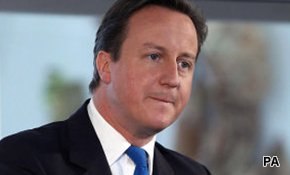Prime Minister David Cameron’s ‘Big Society’ leaves a lot of people confused and dubious, although some supporters feel it would grant people more personal responsibility, the results of a recent questionnaire show.
The ‘Big Society’ is what Cameron calls his plan to create more cohesive communities. He fiercely promoted the policy during the election campaign and has included it in the Conservative – Liberal Democrat Coalition Agreement, which, it says, aims to give more power and responsibility to ‘citizens, communities and local governments’ and ‘redistribute power’ to ‘achieve fairness and opportunity for all’.
The Agreement hopes to do this through five policies which have been designed to give communities more power and encourage people to take an active role in their communities; to transfer power from central to local government; to support mutuals, charities and social enterprises; and to publish Government data. All this, especially the aims relating to communities and co-ops, constitutes the building blocks of the so-called ‘Big Society’, whereby people will get involved in their own society and government at ‘grassroots’ level. Cameron has said he wants to ‘create communities with “oomph” and neighbourhoods…that shape the world around them.’
No idea
However the concept has left a sizeable amount of our respondents confused. When asked what they understood by the term ‘Big Society’, many replied that they had ‘no idea’, and didn’t know what it meant. And while the respondents who did know generally explained it correctly, the subject seems divisive, as few managed to describe it without putting a positive or negative spin on the definition.
Government gimmick?
In fact, a significant portion of the panellists saw the concept of a ‘Big Society’ as a ‘gimmick’ or a ‘con’ by the Government. In a nutshell, there is a strong feeling that the ‘Big Society’ is an excuse for ‘getting things done for free at the expense of jobs in the public sector’ and a ‘shirking of responsibility’ by the Government that means the ‘poor will suffer’. One person summed it up as a ‘Government get-out clause’.
Or positive policy?
On the other hand, many feel positively about this policy, claiming that allowing citizens to take more responsibility would allow society to ‘get away from the blame culture’ and lead to a ‘reduction in the “nanny state” mentality’. A lot of positivity also seemed to focus around the idea of society becoming more ‘inclusive’, with people ‘helping each other out’. There appears to be a persistent feeling among those who view Cameron’s idea in a fonder light that we all ‘should take responsibility for our own community.’ However, one panellist did wonder, ‘who decides which decisions we are allowed to take?’
It looks like Cameron’s plan may not be entirely plain sailing among members of our panel should the PM choose to implement it any time soon.









